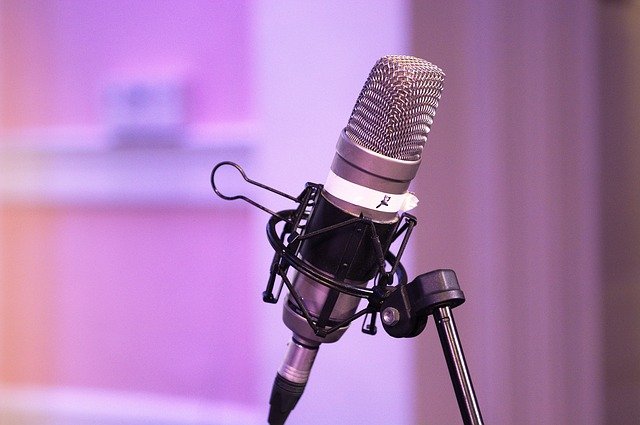TW: This article discusses racism.
In series two of the Gurls Talk podcast, host Adwoa Aboah spoke to author Bernadine Evaristo about her award-winning novel Girl, Woman, Other and her struggles with racial identity as a young woman.
I am a podcast enthusiast. Podcasts are a brilliant way to hear about social issues and current affairs from the viewpoint of individuals across all walks of life. I love listening to female-led podcasts that seek to empower and uplift others. Some of these podcasts are Jameela Jamil’s iWeigh, Sara Pascoe’s Sex Money Power, Vic and Jas’ Black Gals Livin’ and Scarlett Curtis’ Feminists Don’t Wear Pink and Other Lies. I have always found comfort in the idea that podcasts offer a safe space to hear about a myriad of issues – however niche the problems might well be. Podcasts function as virtual support systems for many individuals, such as myself.
“Aboah and her fascinating guests tackle critical social issues – from period poverty to transgender rights, mental health and addiction.”
My all-time favourite podcast, however, is model and activist Adwoa Aboah’s Gurls Talk. In 2015, Aboah initially founded ‘Gurls Talk’ as an online community and forum for young women to discuss whatever problems they might be facing; Aboah later adapted this online initiative into podcast form. Together, Aboah and her fascinating guests tackle critical social issues – from period poverty to transgender rights, mental health and addiction. Through conversation, Aboah aims to dismantle the stigma that is, unfortunately, attached to these areas.
Gurls Talk, which aired its first podcast episode in 2018, offers a refreshing take on modern life with a no holds barred approach to highlighting such relevant and urgent issues.
Identity and Race
The most recent episode of Gurls Talk features an interview with author and activist Bernadine Evaristo. Evaristo and Aboah candidly spoke about similar experiences of growing up as biracial in Britain and the sense of cultural dislocation that both women struggled with as a result of their heritage. The women shared starkly similar experiences despite the generational gap between Evaristo, born in 1959, and Aboah, born in 1992. Evaristo and Aboah discussed the problems inherent in the fact that they grew up surrounded by “complete whiteness”, which only cemented their feelings of difference to many of those around them.
“The two activists began to recognise how their identity struggles had stemmed from growing up in a British cultural setting which failed to value racial diversity.”
It was simultaneously fascinating and deeply troubling to hear both women speak so honestly about their battles with their identity growing up. However, Evaristo and Aboah stated that their confidence grew as they become older: they became to appreciate their differences. The two activists began to recognise how their identity struggles had stemmed from growing up in a British cultural setting which failed to value racial diversity.
Girl, Woman, Other
“Evaristo’s powerful novel focuses on ideas of heritage, the African diaspora, and feelings of otherness.”
Evaristo’s eighth novel Girl, Woman, Other (2019) seeks to open our mind to different possibilities of what ‘Britishness’ means to a variety of people. The novel examines ideas of heritage, the African diaspora, and feelings of otherness. As a result, the author poetically details the experiences and stories of people who the canon of Western literature seldom highlights. Evaristo narrates a story that has long needed to be heard by the world, and the sheer popularity of her book speaks volumes for this fact. Girl, Woman, Other has a legion of followers: former US President Barack Obama included the novel amongst his favourite books of 2019.
While Evaristo expressed how she does not intend for her writing to have any socio-political purpose, and that she does not write to educate readers, she recognises that her political thoughts will influence her stories. The fact that Evaristo went on to become a recipient of the world-renowned Booker Prize for Girl, Woman, Other in 2019 is testament to the success of her approach to writing and addressing of issues of race in nuanced, creative, ways.
The Booker Prize has, alarmingly, never been awarded to a black woman before. Evaristo’s claiming of the prize provides hope for the near future that the mainstream literary sphere will support and encourage ethnically and gender diverse writers to tell their stories.
Taking Up Space in the Arts Sphere
“Writing holds power to change attitudes and societal norms concerning issues of race”
Evaristo felt optimistic that a generation of non-white writers would continue to take up their rightful space within the creative industries. However, the author insisted that this can only happen when writers of all colours are present across many different literary genres. Evaristo emphatically dismissed the “tokenis[tic]” gestures which work to suppress the talent and significance of non-white authors’ literary work.
I enjoyed listening to Evaristo speak articulately about how writing holds power to change attitudes and societal norms concerning issues of race. Evaristo highlighted the notion that change, education and reflection are crucial in the fight against systemic racism, and that this should form part of a collective effort.
“We need to listen and learn from the stories and lived experiences of diverse authors”
Let’s hope that the Booker Prize, and other established literary prizes, continue to recognise the achievements of writers from minority backgrounds. However, it should not have to take an award for minority writers and creatives to be acknowledged. We need to listen and learn from the multifaceted, illuminating, stories and lived experiences that diverse authors, such as Bernadine Evaristo, seek to tell the world. We also need to listen to and support inclusive platforms such as Gurls Talk, which amplify the voices of marginalised communities.
Shannon Cook
For more information and to get involved with the ‘Gurls Talk’ community, please follow this link.
Featured image courtesy of Positive_Images via Pixabay. Image license found here. No changes were made to this image.

